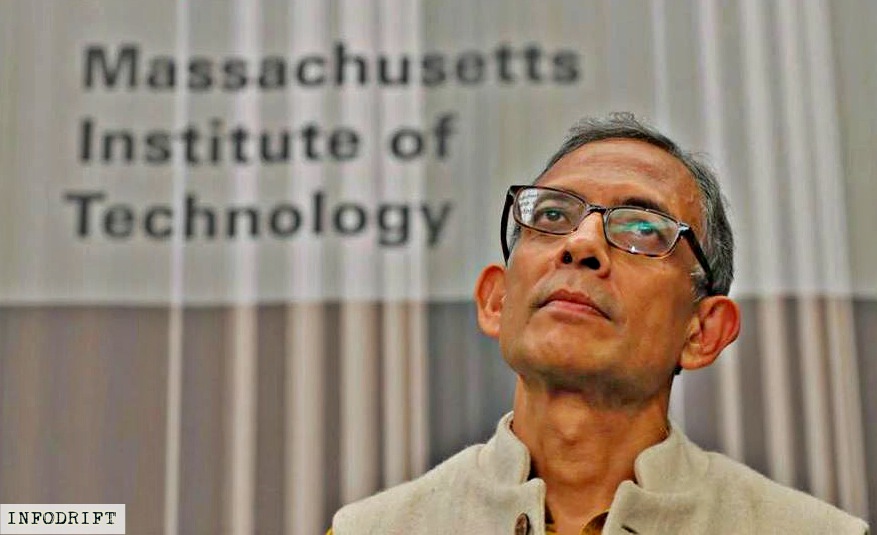 |
| Image credit: The Print |
India is not only a geographical landform in South Asia which has the world's largest and most successful democracy governing over 1.33+ billion people which makes it a great country but the people, the daily challenges they face, the solutions they have as well as their collective-n-voluntary approach to problems makes India a great country.
Our country is a talent-mine and the challenging atmosphere which we get here which makes our desire for more exposure more intense which bakes amazing talents different than the rest of the world.
And it has been over a century that the Nobel prize has been awarded to various intellectuals & geniuses around the world in various fields for excellence in their work and contribution in shaping the world we see today.
And of course, the Nobel Foundation since its formation has been constantly admiring the achievements of the people from the Indian subcontinent, in fact, Rabindranath Tagore was the first Asian Nobel laureate.
Since then, we have seen many Indians and people based in our county been allocated by the honor in various fields like Physics, Chemistry, Medicine, Peace & Economic Sciences.
The recent Nobel allocates were a quiet special for India as the India based American economist Abhijit Banerjee was declared the winner of the 2019 Nobel Memorial Price in Economic Sciences, sharing it with Michael Kremer & his own wife Esther Duflo.
 |
| Image credit: The Independent |
So, wanna know about his journey from a common Bengali boy to an economist of such a caliber which earned him the noble prize for his experimental mental approach in alleviating the global economy.
Abhijit Vinayak Banerjee was born on 21st Feb 1961 to a Marathi Mother Nirmala and a Bengali father Dipak Banerjee who both were professors in economics in Calcutta (now Kolkata).
Abhijit completed his schooling from the South Point High School and B.sc (H) degree in 1981 from the University of Calcutta in his hometown. Forwardly he went to the Jawaharlal Nehru University (JNU), Delhi in 1983 for post-graduation (M.A) in Economics.
And it was the time where he met his colleagues who are now at considerably high positions. The list also includes the Finance Minister of India, Nirmala Sitharaman. The environment there made him active to raise the student issues and was even jailed for 10 days in Tihar Jail during a protest.
After completing the M.A in Economics from JNU, in 1988 he went to commence P.H.D in Economics at Harvard University. After receiving the doctorate degree he has been a professor at universities like Princeton & his alma matter Harvard itself. And currently, at MIT he's the professor of economics.
 |
| Image credit: Hindustan Times |
He had married his colleague professor (in Literature) from MIT, Dr. Arundhati Tuli with whom he divorced and they had a son who died in an accident a few years ago. He then married another MIT professor who was also his co-researcher, Dr. Esther Duflo in 2015 and they have two children.
Now discussing his area of work, he works to reduce and scientifically make an impact on global poverty by an experimental approach on the field for which he had established Abdul Lateef Jameel Poverty Action Lab also known as J-PAL in 2003 along with Duflo (now his wife) and Sendhil Mullainathan.
 |
| Image credit: Wikipedia |
It also consults other governmental agencies, NGOs and voluntary organizations working to reduce poverty. It has worked effectively in several parts of the world and especially in Kenya & India. They work to make the governmental anti-poverty schemes & programs more effective through their trials & experiments.
For his excellence in the field of economics as well as for authoring several books, he has been a recipient of several prizes like the Infosys Prize (2009), Gerald Loeb Award (2012) shared with Duflo, Bernhard Harms Prize (2014), etc.
He was also a member of a panel of experts to update Millennium Development Goals, for which in 2013 he was personally named by the UN general secretary (in those days) Ban Ki-Moon.
And now being recognized for the Nobel memorial prize, its the biggest honor for his efforts in alleviating poverty through a unique approach.
 |
| Image credit: Indian Eagle |
And the fun fact is that he and his wife are the sixth couples to win a noble prize. Meanwhile, he's the second Bengal based Nobel laureate in Economic Sciences after Amartya Sen.
The revelation made his splashing entry into the top charts of the Indian media which was fully embedded in discussing the undeclared Indian economic slowdown.
He has also recently commented on the approach of the Indian government to the economy and its several schemes of which we'll talk about in our next blog in this trilogy.
Thank you


0 Comments